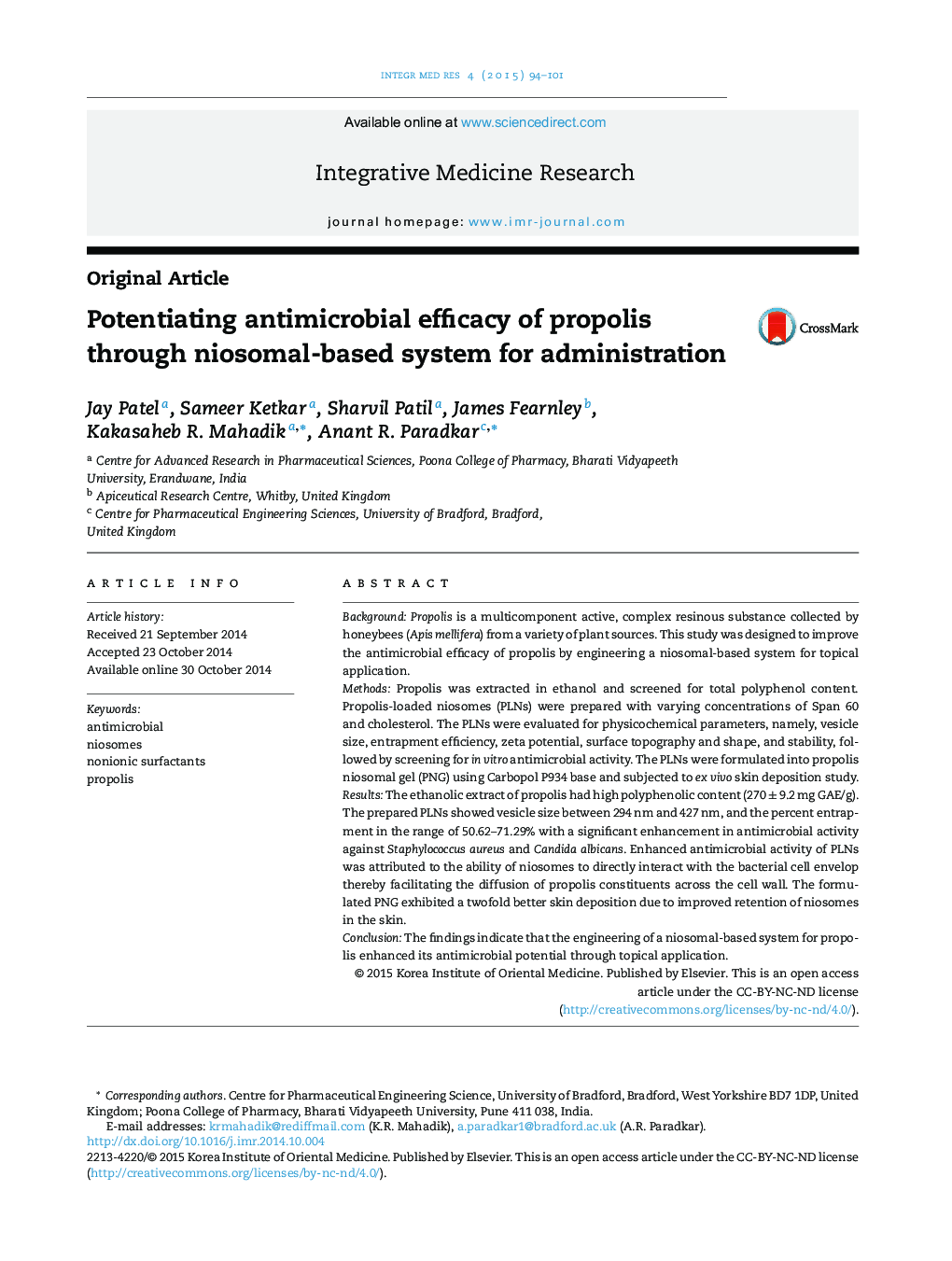| Article ID | Journal | Published Year | Pages | File Type |
|---|---|---|---|---|
| 3098199 | Integrative Medicine Research | 2015 | 8 Pages |
BackgroundPropolis is a multicomponent active, complex resinous substance collected by honeybees (Apis mellifera) from a variety of plant sources. This study was designed to improve the antimicrobial efficacy of propolis by engineering a niosomal-based system for topical application.MethodsPropolis was extracted in ethanol and screened for total polyphenol content. Propolis-loaded niosomes (PLNs) were prepared with varying concentrations of Span 60 and cholesterol. The PLNs were evaluated for physicochemical parameters, namely, vesicle size, entrapment efficiency, zeta potential, surface topography and shape, and stability, followed by screening for in vitro antimicrobial activity. The PLNs were formulated into propolis niosomal gel (PNG) using Carbopol P934 base and subjected to ex vivo skin deposition study.ResultsThe ethanolic extract of propolis had high polyphenolic content (270 ± 9.2 mg GAE/g). The prepared PLNs showed vesicle size between 294 nm and 427 nm, and the percent entrapment in the range of 50.62–71.29% with a significant enhancement in antimicrobial activity against Staphylococcus aureus and Candida albicans. Enhanced antimicrobial activity of PLNs was attributed to the ability of niosomes to directly interact with the bacterial cell envelop thereby facilitating the diffusion of propolis constituents across the cell wall. The formulated PNG exhibited a twofold better skin deposition due to improved retention of niosomes in the skin.ConclusionThe findings indicate that the engineering of a niosomal-based system for propolis enhanced its antimicrobial potential through topical application.
